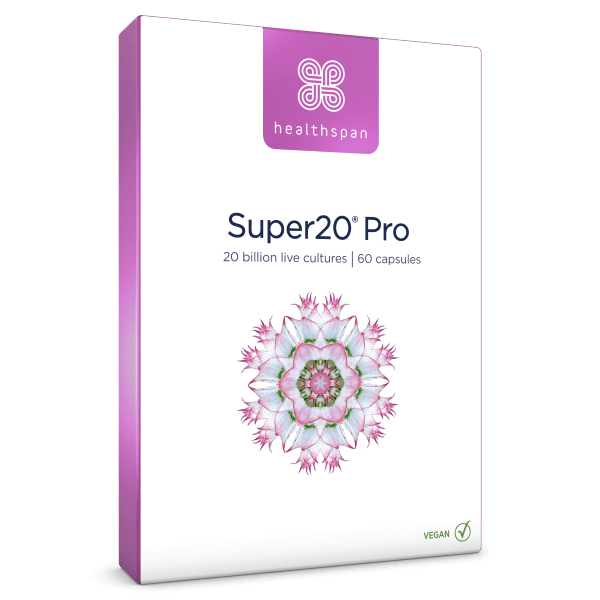Our guts play host to trillions of friendly bacteria. Scientists now believe these 'friendly' bacteria not only benefit gut health and digestion, but may play a role in other aspects of health.
What are probiotics and prebiotics?
Probiotics are live bacteria and yeasts that can be taken as a supplement. They contain bacteria similar to those that inhabit the colon. Prebiotics are preparations of complex sugars that help the 'good' bacteria in probiotics to thrive.
Probiotics can be destroyed by your stomach acid or bile salts, although the strains lactobacillus and bifidobacteria have been found to be highly resistant.
Which bacteria are best?
Not all bacteria are equally effective, so you need to check that you're taking a type of prebiotic/probiotic that is backed up by high-quality research. Three strains of lactic acid-producing bacteria, which are commonly found in fermented foods, are:
- Lactobacillus acidophilus
- Bifidobacteria lactis
- Lactobacillus rhamnosus
These strains are the top three positive bacteria, which aid digestion by breaking down enzymes and other proteins found in food.
Here are some of their potential benefits:
- Aid lactose digestion: These three strains of bacteria can improve the digestion of lactose (a sugar found in milk and dairy products) and ease symptoms in those who are lactose intolerant.
- Protect against intestinal infections: When the balance of the gut is disrupted, you can suffer diarrhoea or constipation symptoms. Lactobacillus acidophilus, Bifidobacteria lactis and Lactobacillus rhamnosus can provide a protective action against the potentially harmful microbes. One review found that the strains Bifidobacteria lactis and Lactobacillus rhamnosus could help prevent acute infectious diarrhoea in children.1

Super20 Pro
Our best-selling probiotic
- 20 billion live cultures from 5 well-researched strains
- Contains Lactobacillus acidophilus, Lactobacillus paracasei, Bifidobacterium lactis and Bifidobacterium bifidum
- Supports the protective intestinal microflora in the gut
4 ways to get your gut healthy
Here's how to restore and improve your gut bacteria.
Choose foods with 'friendly' bacteria: Fermented foods, such as kefir, cottage cheese, live-bio yogurt, sauerkraut and miso, are rich sources of lactic-acid producing bacteria.
Control stress: One study, published in Brain, Behaviour and Immunity, found stress can change the balance of bacteria that naturally live in the gut, contributing to conditions, such as IBS.2
Avoid foods that disturb the balance: Sugar, caffeine, fatty and processed foods can all upset the balance of bacteria in the gut. Replace them with gut bacteria-friendly foods, which play a role in keeping the gut flora fed and nourished (they act as prebiotics feeding 'friendly' bacteria in the digestive system). These include artichokes, bananas, polenta, broccoli, blueberries, miso soup, tempeh, and beans.
Take a prebiotics/probiotics supplement: friendly bacteria help to restore the natural balance of bacteria in the gut.







